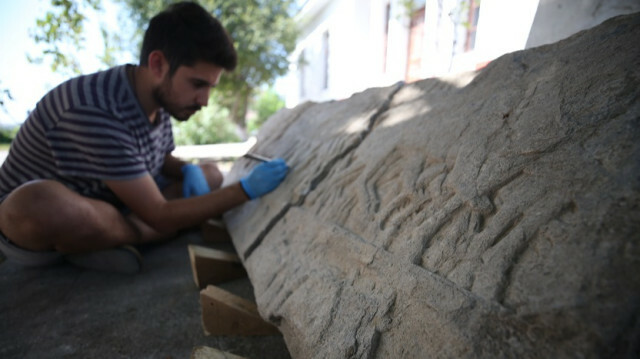

Ancient relief depicting Greek-Persian war unearthed in NW Turkey
Dating back to 5th century BC, relief depicting Greek-Persian wars unearthed in excavations of Dascylium ancient city
Archeologists in northwestern Turkey discovered a relief on Monday depicting a war between the Greeks and Persians from the fifth century B.C.
The figures on the relief show fighting Greek soldiers beneath the hoofs of Persian warhorses, said archeologist Kaan Iren, who leads the dig site of the ancient city of Dascylium found in the modern-day Bandirma district of Balikesir province.
"Here is a scene of propaganda under the pretext of war. We can say these reliefs are a scene from the Persian-Greek wars," Iren told Anadolu Agency.
He added: "We think these reliefs were probably made for propaganda purposes during the wars."
Iren, who has been working at the excavation site in Dascylium with a team of 30 people since June 22, said they had unearthed parts of a stone and mudbrick wall dating back to the eighth century B.C. this year.
"Of the eighth-century-B.C. wall left from the Phrygian age, this year we unearthed an area of four meters (13.1 feet) high and 40 meters long. We think this wall, which made of stone and mudbrick with the mudbrick parts having disappeared over time, was seven or eight meters high," said Iren, who is also a faculty member of the Mugla Sitki Kocman University.
The five-meter-wide wall is believed to have been built by the ancient Phrygian civilization to protect its territory, he said.
Iren noted that the discovery of the relief during the excavations of the wall surprised the team and became one of the season's most significant discoveries.
#Kaan İren
# Greek-Persian wars
#Dascylium ancient city
#Turkey
#relief
#ancient relief
#excavations


